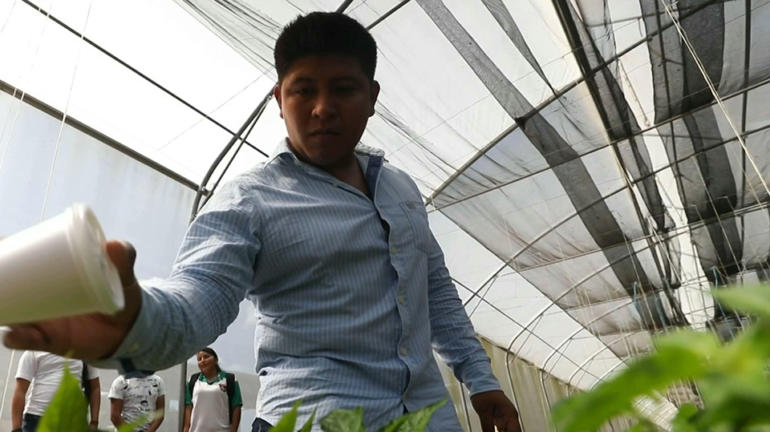In Mexico, researchers have developed a new method of pest control that is safe for the environment and cheaper for farmers. they’re using native insects to get rid of invasive ones.
CGTN’s Alasdair Baverstock reports.
Campeche, on Mexico’s Yucatan Peninsula, is an agricultural region whose name means “Place of Snakes and Ticks” in the native Mayan language. But since 2013, there’s been a new insect in town, the sugarcane aphid, which has wreaked havoc on the state’s agricultural industry.
The solution to the problem may be more insects. The green lacewing is a member of the Chrysopidae insect family. Their larvae are known as ‘aphid lions’ for one simple reason — they voraciously prey on aphids and other insect pests and eggs that are known to damage crops.
Charged by the state government with the production of these pest-fighting bugs, Professor Miguel Burgos with the China Technical Institute, runs a laboratory that produces enough lacewings to feast on the pests covering 20,000 hectares of crops per year.
“In a single week, these aphids can invade a hectare of crops,” said Professor Burgos. “These predatory insects also have predators, so they completely alter the food chain. The treatment will never completely wipe out the pests, but they will reduce their numbers to an extent where they don’t damage the crops, as nature regulates itself on its own.”
The insect eggs are sold across the state for three dollars per hectare, a significant savings over the cost of traditional chemical pesticides. Burgos says over a year, farmers can save up to 80 percent of the cost of conventional pesticides. In addition to being cheaper, the process is entirely eco-friendly.
“The agricultural products that come from fields treated with these insects are completely safe because they have not come into contact with chemical pesticides” said Burgos. “Our goal as a lab is, through the production of these insects, to eliminate the use of chemicals in combating pests.”
Annery Serrano is a Campeche-based biologist and says this sort of eco-friendly alternative is essential for more sustainable agriculture.
“These insects take longer to have an effect than chemical pesticides, so the farmers, who are generally from poor backgrounds, can be harder to convince to use these biological methods” Serrano said. “But once these are available at even lower costs on the market, produced on a larger scale and made easily accessible to the producers, they will be a very viable form of pest control.”
As Campeche state tackles its problem with pests, it’s doing so in a sustainable way, by letting mother nature do the work.
 CGTN America
CGTN America
 Researchers in Mexico develop an eco-friendly method of pest control that uses native insects to get rid of invasive ones.
Researchers in Mexico develop an eco-friendly method of pest control that uses native insects to get rid of invasive ones.
